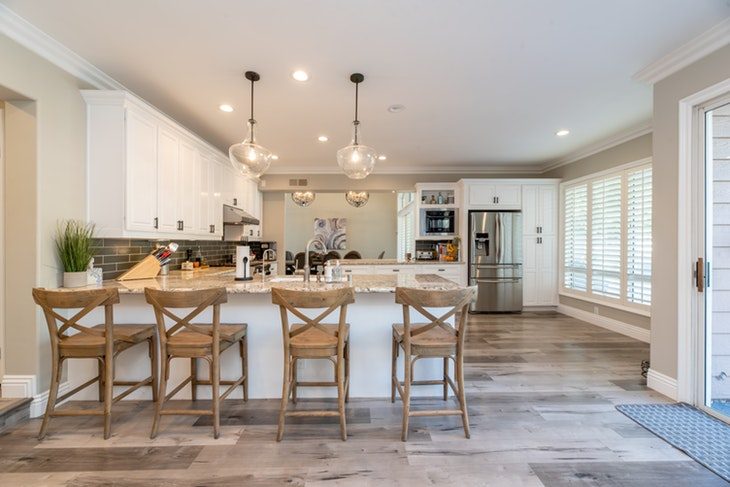
When you finally design, build, or find the home of your dreams, you’ll feel an overwhelming rush of satisfaction and excitement. This is the architectural structure you’ll enjoy as your home environment for years, if not decades to come. Every day, you’ll wake up happy with your house—at least hypothetically.
Read more after the jump:
There are a few problems with this premise:
· Things go wrong. No matter how new or how well-planned your home was, things are going to go wrong. It could be an emergency repair to an important fixture like a water pipe or electrical wiring, or it could be damage to your home after a severe storm or natural disaster. Whatever the case, something could take damage, fail, or deteriorate, and it will be on you to repair or replace it.
· Your taste may change. The “perfect home” when you’re 30 may not be the same as the “perfect home” when you’re 40. Your tastes are going to change as you get older, whether you realize it or not. Eventually, you may want to change things like flooring, cabinets, and other fixtures in your home.
· Trends and standards evolve. Home trends change frequently, so if you choose something that’s currently in style, it may not stay in style for the foreseeable future. Similarly, building codes change; if you own an older home, you may eventually need to upgrade various components to comply with new regulations.
If you want your dream home to stay your dream home, you’ll need to commit regular maintenance and regular inspections to address these three points. Of course, this can get expensive—especially if you’re working with an older home.

Reducing Your Maintenance Costs
So what can you do to reduce these costs?
· Learn basic DIY skills. First, you can take classes, watch YouTube videos, and get some firsthand practice to learn how to conduct basic repairs and maintenance on your own. Learning how your appliances work, the most important types of maintenance to conduct, and so on, can spare you the need to call out a professional every few months. Over time, it can save you thousands of dollars. However, be especially careful trying to do your own work on highly sensitive or dangerous projects; for example, it’s unwise to work with electrical wiring at any more than a basic level if you’re not an expert.
· Inspect your home regularly. Most problems you’ll encounter in your home will start off very small, almost unnoticeable, and gradually grow worse to the point they become major problems. Accordingly, if you catch problems when they’re small, you’ll be able to address them proactively, spending far less time, money, and energy to repair them before they get worse. Inspect your home regularly, even in areas that seem to be in fine condition, just to make sure everything’s functioning as intended.
· Keep everything clean. This point requires you to do more than just sweep, vacuum, and dust your home. Instead, get in-depth with your cleaning by swapping out your HVAC filters on a regular basis, clearing out the gutters, and removing dust and debris from your ventilation system. These routine cleanings and changings can keep your house operating as intended, and reduce the possibility of damage.
· Understand the effects of seasonal changes. If you live in an area with extreme temperature changes between seasons, it’s important to know what those seasonal changes entail. For example, will your home experience periods of expansion and retraction? Is there a chance your pipes could freeze?
· Network to find great contractors. Finally, take the time to network with other people and find reliable, efficient contractors to perform your home maintenance. Ask your neighbors who they’ve worked with in the past, and get recommendations from contractors you already trust. If you maintain good relationships with these professionals, you’ll get better deals, ultimately spending far less on repairs.
Build Your Emergency Savings
You never know what repairs, changes, or additions you’ll need for your dream home, or how much they’re going to cost. Accordingly, it’s in your best interest to save up an emergency fund, so you can reasonably handle nearly anything that comes up. Try to save at least a few thousand dollars, or more if you know your home is especially prone to issues. It may take a few months to accumulate these savings, especially if you’re already dealing with maintenance expenses, but it’s worth the extra effort.
Maintenance is going to require your attention and money no matter what kind of home you have—even if it’s the home of your dreams. Learning to plan for those expenses and minimizing them to the best of your ability can make sure you don’t go bankrupt in the process.




